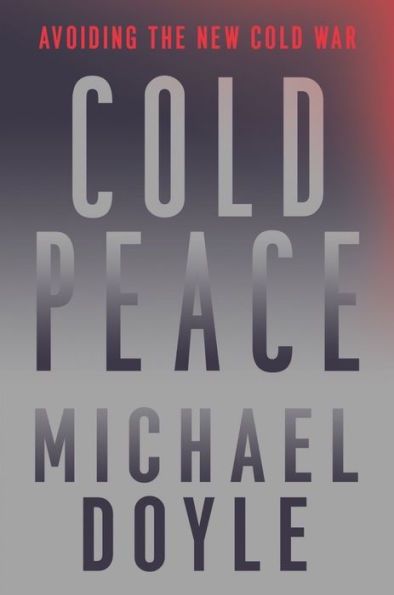Cold Peace: Avoiding the New Cold War

Speaker: Dr. Michael Doyle (Columbia University)
Date: 31 May 2023
Speaker Session Summary
US and China are considered by many analysts and scholars to be in a second Cold War. Dr. Doyle specified that there are four types of political relationships—hot war, cold war, cold peace, and warm peace. If countries are in a hot war, then they are engaging in open military conflict. If they are in a warm peace, then they have mutual respect for each other and participate in peaceful competition that allows for frequent bilateral cooperation. An example of two actors who are currently in warm peace are the US and EU. Dr. Boyle argued that the US and China should work towards ending their current cold war and entering a stage of cold peace. This cold peace would still lack bilateral US-China cooperation and shared legitimacy, but it would involve no subversive activities, such as industrial espionage.
Dr. Doyle argued that this new cold war between the US and China began during 2012. Although this cold war involves new tactics, Dr. Doyle stated that old Cold War tactics are also still being used today, including Russia’s subversive political actions targeting US and other democratic countries during elections. The extent of competition in cyberspace is one aspect of the new cold war that sets it apart from its predecessor. These cyber activities include hacking and ransomware attacks that target strategic infrastructure, commercial entities, and government institutions. He also emphasized that China is much better-suited to economically compete with the US than the Soviet Union was during the first Cold War due to its vast economic diversity. Dr. Doyle explained that—like the first Cold War—the current cold war does not only pit two actors against each other but it also pits those actors’ ideologies. These ideological battles include the competition between democratic and autocratic governance, corporate and market capitalism, and sovereign nationalism and liberal internationalism. The lack of current cooperation between the US and China is currently having negative consequences, including a lack of resources being used to stop the next global pandemic or slow global warming. However, there are several areas where cooperation can occur, Dr. Doyle stated, including agreements against subversive espionage and potentially a trilateral arms control agreement between the US, China, and Russia.
Speaker Session Recording
Biography:
Michael W. Doyle is a University Professor of Columbia University, affiliated with the School of International and Public Affairs, the Department of Political Science, and the Law School. Doyle’s career has joined scholarship and international public service. He has published books on the history of empires, international monetary order, UN peacekeeping, preventive war and international intervention. He is, perhaps, best known for the theory of the liberal democratic peace (“democracies do not go to war with each other”). His most recent book is Cold Peace: Avoiding the New Cold War (Liveright/WW Norton, 2023), a study of how to avoid a new cold war between the US and Russia and China.
From 2006 to 2013, Doyle was an individual member and the chair of the UN Democracy Fund, a fund established in 2005 by the UN General Assembly to promote grass-roots democratization around the world. Doyle previously served as assistant secretary-general and special adviser for policy planning to United Nations Secretary-General Kofi Annan. In the 1990’s he was a peacekeeping adviser to High Commissioner for Refugees Sadako Ogata and in 2002 prepared a report on migration governance in the UN system for SG Kofi Annan. He has received two career awards from the American Political Science Association for his scholarship and public service and has been elected to the American Academy of Arts and Sciences, the American Academy for Political and Social Sciences and the American Philosophical Society. He has earned an A.B. and Ph.D from Harvard University and been awarded an honorary doctor of laws degree from the University of Warwick (UK).
Comments